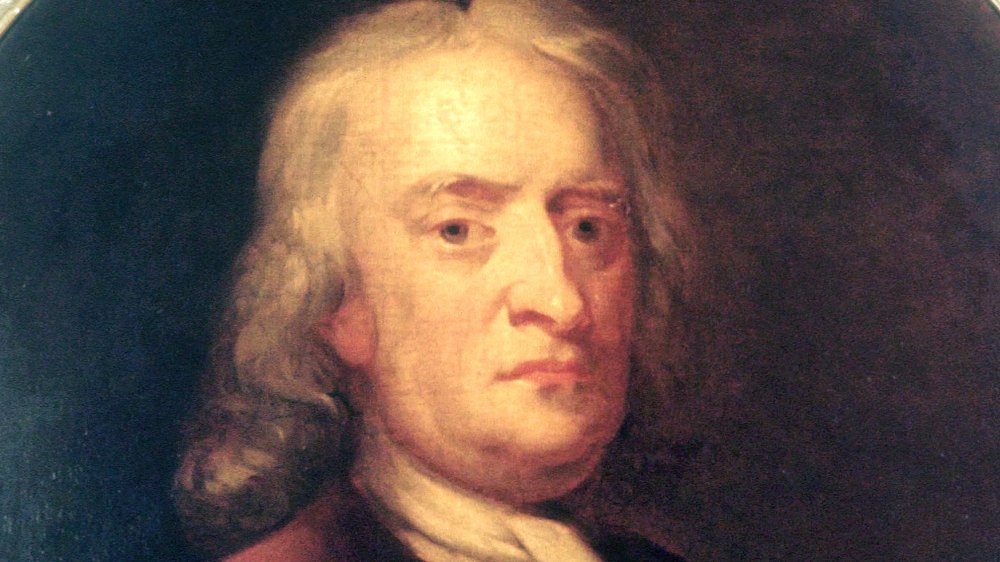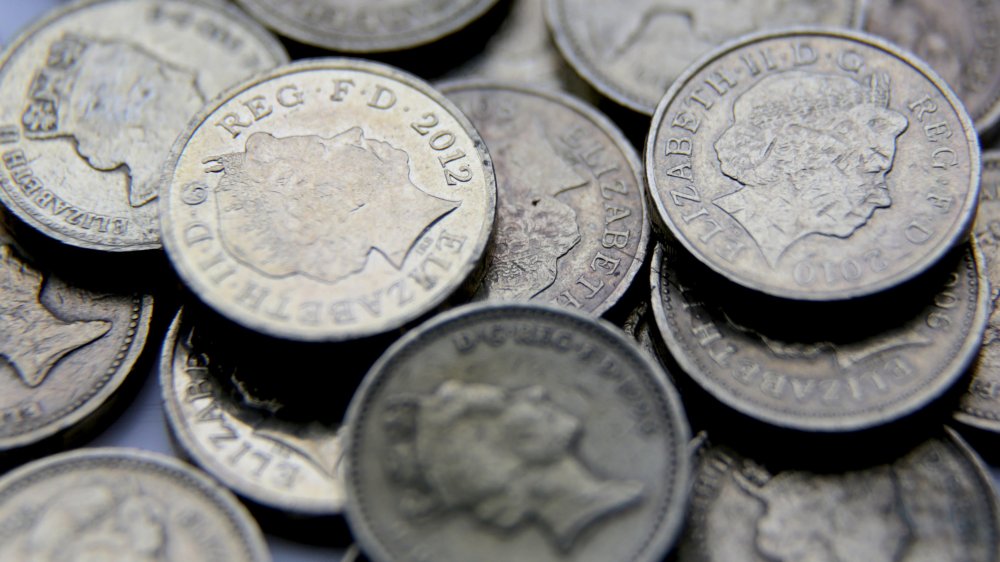How Isaac Newton Caught One Of History's Biggest Counterfeiters
Sir Isaac Newton may have been one of the greatest physicists of all time. After all, he discovered gravity, during quarantine, in a rather famous event involving an apple tree. But he did have other interesting hobbies, other than math, like busting counterfeiters.
Newton was appointed to the position of Warden of the Royal Mint in 1696, the organization that made coins in the United Kingdom, according to Isaac Newton and the Counterfeiters. Unlike his predecessors in the position, Newton took his duties very seriously. He actually attended meetings, was determined to only make coins that were of quality, and most importantly, vowed to stamp out counterfeiters. Coinweek writes that Newton was so serious about his job that he often went undercover to investigate potential counterfeiting, and sometimes arrested the criminals himself. There's even evidence that he ... well, might have tortured people (because, genius or not, he was actually a terrible person).
Newton's greatest feat as Warden of the Royal Mint, though, was to catch one of history's biggest counterfeiters: William Chaloner.
Newton was kind of a detective, too
The Delaware Gazette reports Chaloner apprenticed as a nail maker before turning his attentions to making fake coins. He was so successful that he managed to buy a large house just with his counterfeit coins. When he was first questioned about the fake coins, Chaloner claimed that he stumbled onto the casts used to make coins and took them to catch the counterfeiters.
Meanwhile, as Chaloner's notoriety grew, Newton was determined to catch him. Per Isaac Newton and the Counterfeiters, informants were brought to the Tower of London (where the Royal Mint was then located) so he could get a confession out of them. Then, he hit upon an idea: he hired people to be his inside men in Chaloner's group, and they slowly gathered evidence against Chaloner. By the time Chaloner was brought to trial, Newton had convinced the counterfeiter's former partner to cooperate: He produced evidence that Chaloner was not only counterfeiting coins, but creating fake paper money in multiple currencies. Even worse, Chaloner's wife testified against him, as well as old members of his gang, until Chaloner's fate was sealed, and in 1699, he was hanged.
Newton was quite successful at his job, obviously, and he was eventually promoted to being "Master" of the Royal Mint.

